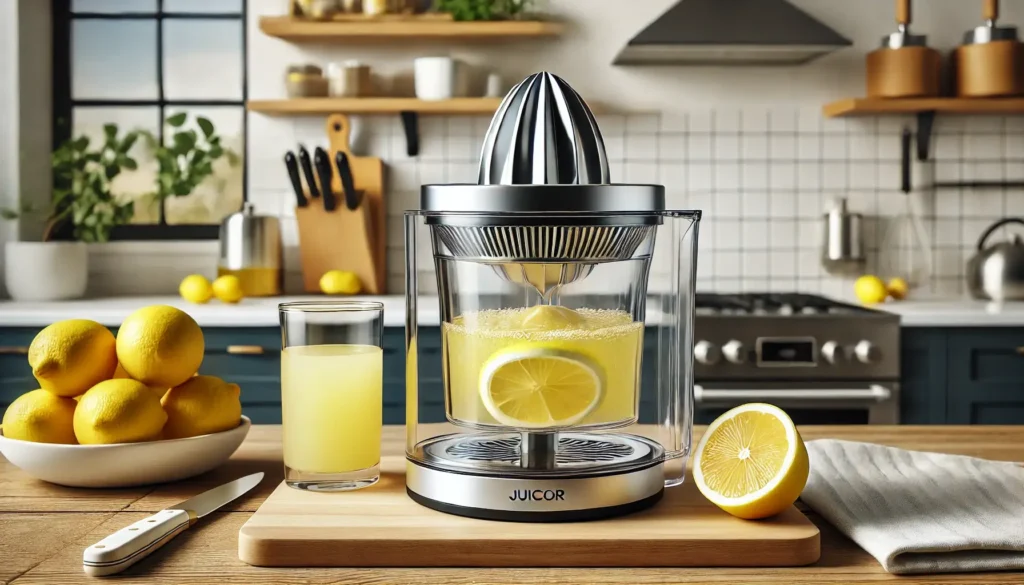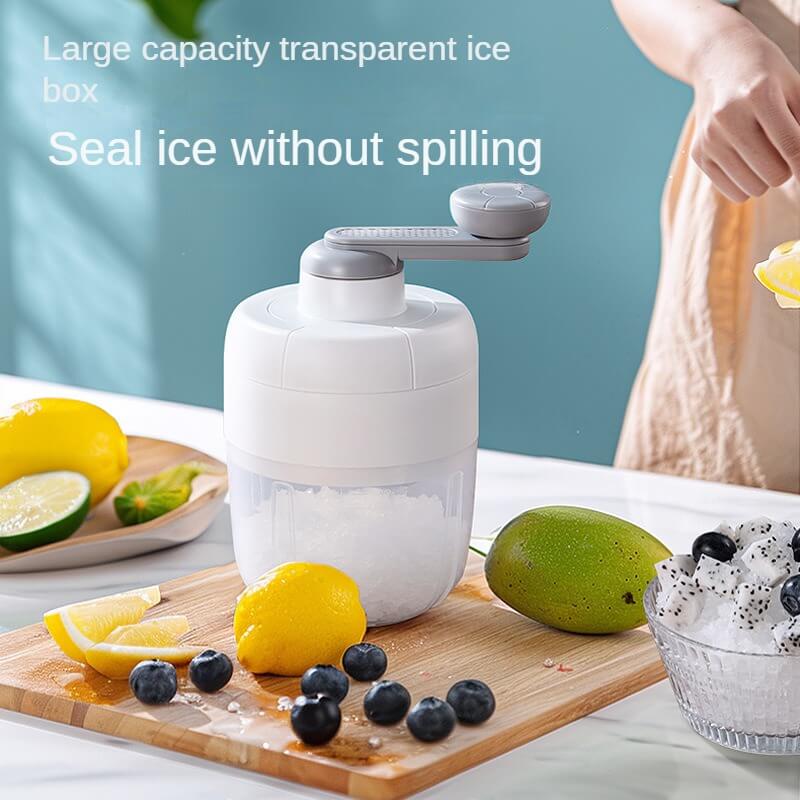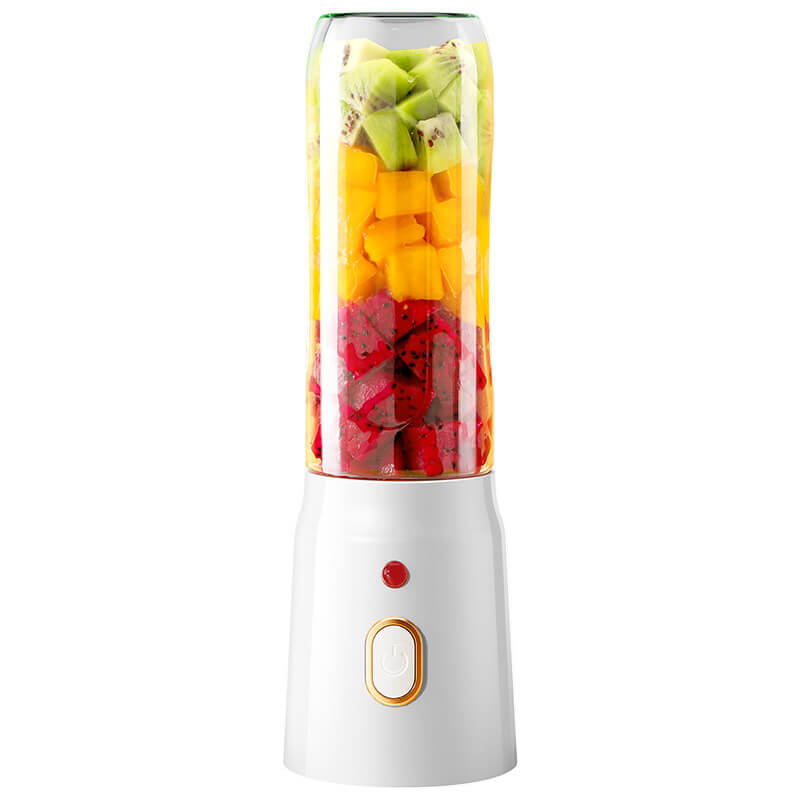Lemon Squeezer Juicer: 5 Must-Know Tips for the Perfect Choice
Tired of struggling with those old-fashioned lemon squeezers? Upgrade your kitchen game with a high-quality lemon squeezer juicer. When it comes to making fresh lemonade, cocktails, or any dish that needs a citrusy kick, the right lemon squeezer juicer can make all the difference. With so many options on the market, from manual squeezers to electric juicers, it can be tough to figure out which one is best for your needs. This guide will answer the most common questions consumers have, and help you choose the perfect lemon squeezer for your kitchen.
1. What Is the Best Lemon Squeezer Juicer for Getting the Most Juice with Minimal Effort?
Consider factors like juice yield, ease of use, and durability. One of the main reasons to invest in a lemon squeezer is to extract as much juice as possible, with as little effort. A quality lemon squeezer juicer should be designed to press out every last drop of juice from the fruit without requiring too much force from the user.
- Manual Handheld Squeezers: These are typically the most common and affordable option. They work by pressing the lemon between two handles, squeezing out juice as you press down. Look for models with ergonomic handles, which reduce the effort needed, and leverage-based designs that maximize juice output.
- Electric Juicers: If you’re looking for something even more efficient, an electric lemon juicer is your best bet. These machines do all the hard work for you—simply cut the lemon in half, place it on the reamer, and let the machine extract the juice with minimal effort.
For most people, a manual, stainless steel squeezer with a strong lever design provides the perfect balance of ease of use, juice extraction, and affordability.
2. How Do I Choose Between a Manual Lemon Squeezer and an Electric Juicer?
The choice between a manual and electric lemon squeezer juicer depends on your individual needs and preferences. how often you use citrus fruits, and your kitchen space.
- Manual Lemon Squeezer: If you only occasionally squeeze lemons or other citrus fruits, or if you prefer a more affordable option, a manual squeezer will work great. Manual squeezers are easy to store and clean, making them perfect for kitchens with limited space. They are also more portable, allowing you to use them anywhere, even on-the-go.
——————-》Small Hand-Cranked Ice Crusher
- Electric Lemon Juicer: If you juice lemons, oranges, or other citrus fruits frequently, an electric juicer may be a better choice. Electric juicers take the physical effort out of juicing and are great for extracting large quantities of juice quickly. They tend to be larger and require more storage space, but their ease of use is a major plus for frequent juicers.
——————-》 500ML Portable Small Fruit Blender
Ultimately, it comes down to convenience versus cost. Electric juicers offer speed and convenience for higher price points, while manual squeezers provide simplicity and affordability.
3. Is a Stainless Steel or Plastic Lemon Squeezer More Durable and Effective?
When shopping for a lemon squeezer juicer, one of the most important factors to consider is the material. A durable and effective lemon squeezer juicer is essential for long-lasting performance.
- Stainless Steel Lemon Squeezer: Stainless steel is generally more durable and long-lasting than plastic. It can withstand more pressure, doesn’t rust, and is dishwasher safe, making it easy to clean. Stainless steel squeezers are ideal for frequent use and will last for years without showing signs of wear. They are also better at withstanding high pressure when squeezing larger citrus fruits like oranges or grapefruits.
- Plastic Lemon Squeezer: Plastic squeezers are often cheaper and lighter than stainless steel models, making them a good option if you’re on a budget or need something lightweight. However, they are generally less durable and can wear out over time, especially if used frequently. Some high-quality plastic juicers come reinforced with durable components, but stainless steel remains the superior option for longevity.
For most consumers, stainless steel offers the best balance between durability, ease of use, and long-term value.
4. Can a Lemon Squeezer Juicer Be Used for Other Fruits, Like Limes or Oranges?
One of the great things about a good lemon squeezer juicer is that it’s versatile. While it’s primarily designed for lemons, you can use it for other citrus fruits as well.
- Limes: A lemon squeezer juicer works perfectly for limes. Since limes are often smaller than lemons, some manual squeezers are designed with interchangeable cup sizes or have a smaller press area to maximize juice extraction from smaller fruits.
- Oranges: Many lemon squeezers can also handle small to medium-sized oranges, though you may need to cut the orange into smaller pieces to fit it into the squeezer. Electric juicers are particularly well-suited for oranges, as they can accommodate larger fruit sizes without additional effort.
- Other Citrus Fruits: Whether it’s grapefruits, tangerines, or even small pomegranates, many lemon juicers can handle a range of fruits. Just be sure to check the product description to ensure that the size and design are compatible with the fruits you want to juice.
- Versatility is Key:A juicer can do more than just juice! It can easily handle a variety of fruits and vegetables to create delicious juices, smoothies, and fruit and vegetable blends, even baby food. Multifunctional and versatile, it’s the ideal choice for a healthy diet.
In short, a versatile lemon squeezer can handle much more than just lemons, making it a valuable tool in any kitchen.
5. How Do I Clean and Maintain a Lemon Squeezer Juicer for Long-Lasting Use?
To keep your lemon squeezer juicer in great shape and ensure it lasts for years, proper cleaning and maintenance are essential. Here are some tips for cleaning and maintaining both manual and electric juicers:
- Manual Juicers: Manual lemon squeezers are generally easier to clean than electric juicers. Many are dishwasher safe, but it’s always a good idea to rinse them under hot water right after use to prevent pulp and juice from drying and sticking to the surface. If your juicer is made of stainless steel, a quick wash with warm water and soap should do the trick.
- Electric Juicers: Electric juicers often have more components, which means they require more detailed cleaning. After each use, unplug the juicer, disassemble the parts, and rinse them under warm water. Many electric juicers have dishwasher-safe parts, but always check the manufacturer’s recommendations. Additionally, be sure to regularly clean the motor base with a damp cloth to prevent dust and juice buildup.
- Maintenance Tips: To keep your lemon squeezer in good working condition, avoid using abrasive cleaning tools that could scratch or damage the surface. For manual juicers, check for any signs of wear, such as bending handles or cracks, and replace them if necessary. For electric juicers, ensure that the reamer and other moving parts are functioning smoothly and replace any parts that show signs of wear.
General Tips:
- Avoid harsh chemicals: Using harsh chemicals can damage the juicer’s materials.
- Dry thoroughly: Before storing, ensure all parts are completely dry to prevent mold or mildew growth.
- Check for wear and tear: Regularly inspect the juicer for any signs of damage or wear.
- Replace parts as needed: If any parts become damaged or worn, replace them to ensure optimal performance.
Conclusion
Choosing the right lemon squeezer juicer can significantly improve your kitchen experience, making it easier to enjoy fresh, citrusy flavor in your dishes without the hassle. Whether you opt for a manual handheld squeezer or a more powerful electric juicer, be sure to select a model that fits your needs in terms of material, design, and ease of use. With the right juicer, you’ll be able to squeeze out every last drop of juice with minimal effort, enhancing your cooking and your drinks.
Invest in a quality lemon squeezer juicer today to enjoy fresh, flavorful juice with ease!

 Mini Sealer
Mini Sealer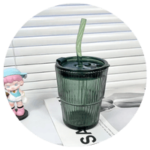 Mugs
Mugs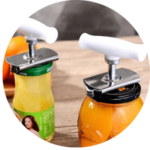 Opener
Opener Placemat
Placemat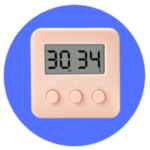 Timer
Timer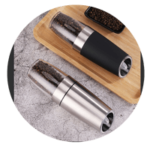 Grinder & Spice Jar
Grinder & Spice Jar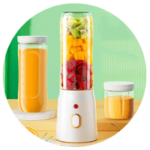 Juicer
Juicer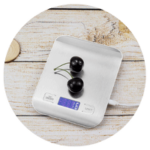 Scale
Scale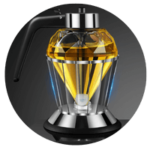 Spray Oil Bottle
Spray Oil Bottle Coffee Tool
Coffee Tool Ice Tray
Ice Tray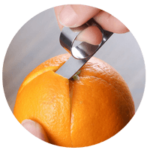 Accessories
Accessories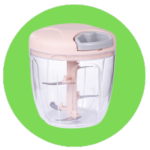 Veggie Cutter
Veggie Cutter Storage Box
Storage Box Cosmetic Brush
Cosmetic Brush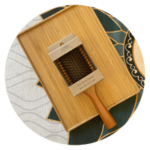 Comb
Comb Fake Nails
Fake Nails